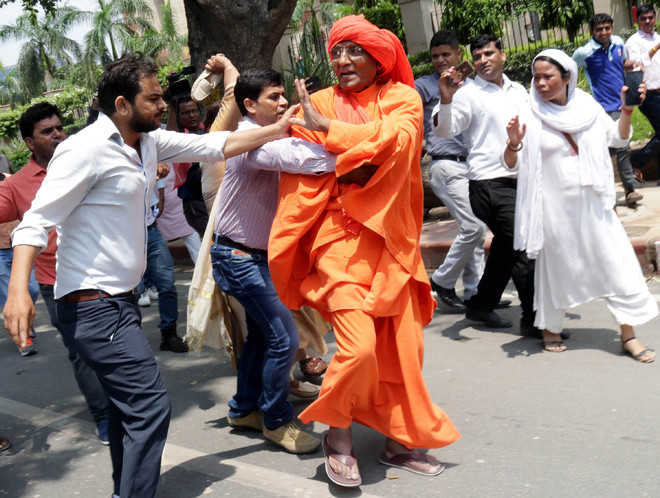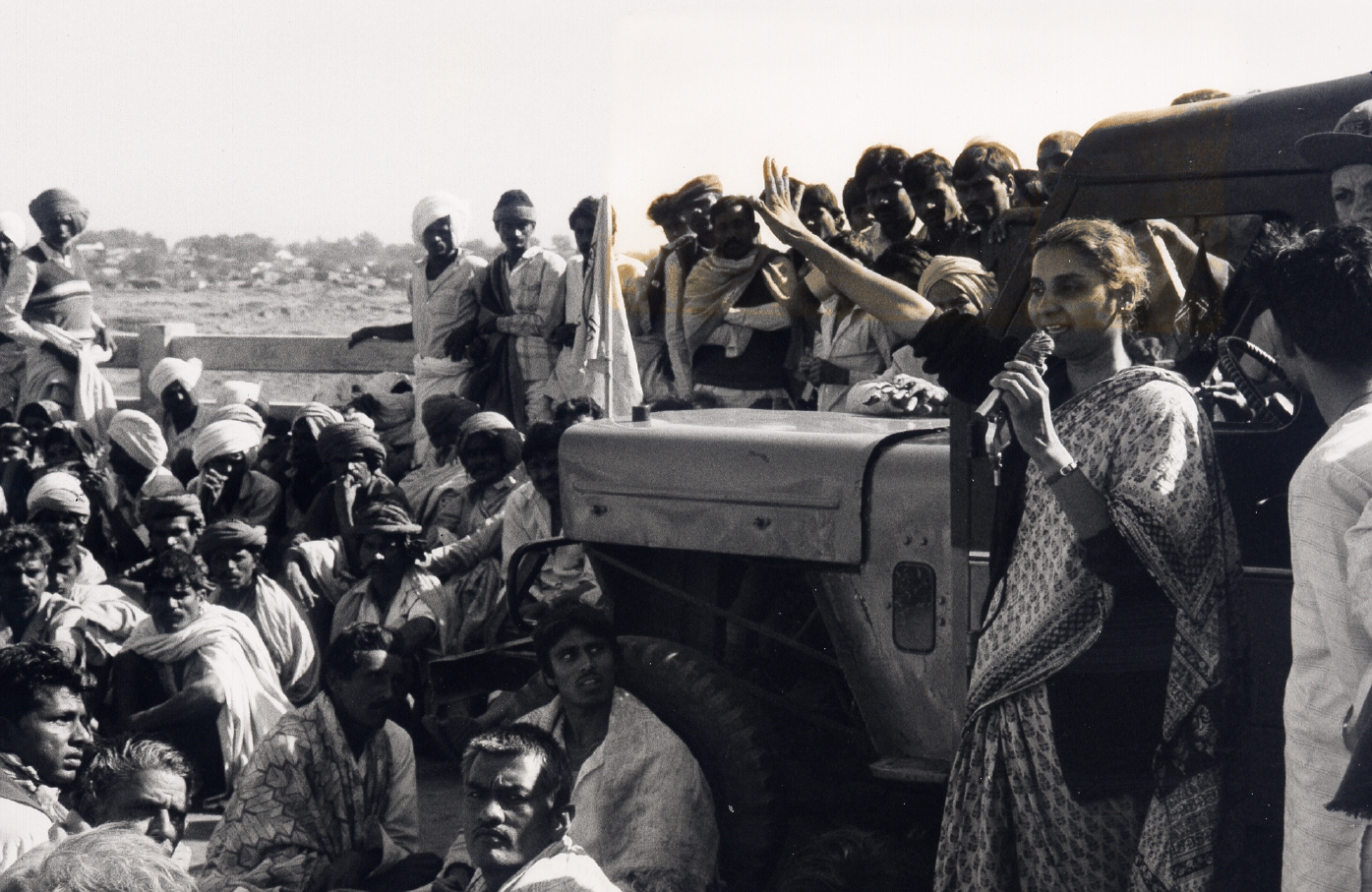SOCIETY
In this revealing note the author has sought to identify the reasons for the normalization of violence and intolerance in our political culture.
Uttam a theater activist and writer situated in siliguri, West Bengal.
Mr. Atal Bihari Vajpayee passed away. The inevitability of death notwithstanding, it was a moment of sadness. Despite political/ideological differences, we all prayed, contemplated, and recalled the man – his poetry and politics, his achievements and contradictions, and his ‘secularism’ amid ‘Hindu’ nationalism. In a way, it was a day of mourning. Writing about him, paying homage to him, seeing his still body for the last time: Atal ji did occupy our collective consciousness.
Yet, at this moment of sadness and prayers, we experienced the tyranny of brute force: the neurotic urge to humiliate, assault and torture the political/cultural dissenters.

To begin with, they did it again with Swami Agnivesh. He was walking towards the BJP headquarters in New Delhi to pay his respects to the mortal remains of Mr. Vajpayee; and then they came, grabbed his shawl and turban, called him a traitor, and assaulted him.
And now think of the fate of Mr. Sanjay Kumar: a sociology faculty at Mahatma Gandhi Central University, Motihari. His active participation in a movement against the Vice-Chancellor of the university, and above all, his Facebook post on Mr. Vajpayee, as it is thought, made the ruling establishment unhappy. And hence, these days if you make them unhappy, you must be prepared for the consequences. They attacked him; and with severe internal injuries he is under medical care at Patna Medical College Hospital.
These two ugly incidents at the day of mourning are truly frightening. Why is it that there is so much hatred and violence in our consciousness?
There are possibly three reasons.
First, power causes tremendous insecurity – the constant fear of losing it. As social psychologists have often argued, the ‘will to power’ leads to the psychology of violence. Power destroys the spirit of trust and dialogue – the ability to live with differences, the courage to hear one’s own critique, No wonder, the cult of authoritarian personality or the mythology of ‘heroism’ invites violence-the violence against the potential ‘traitors’, ‘enemies’ and dissenters. Hence the politics of brute force, mob violence and lynching is normalized. It seems to be all-pervading.
Second, we are living at a time when politics -particularly, the politics of the powerful–has lost the spirit of education: a mode of learning, an awareness of the spirit of a debate, a culture of civility. Instead, it is assumed that power can do anything; it requires no education, no sense of history, no ethical practice. Sometimes I wonder whether these champions of ‘Hindu pride’ have ever read even a couple of pages from the Bhagavadgita or the Upanishads. Forget it. Is there any party class that teaches the cadres how even Savarkar critiqued Gandhi. Or is it that education is a bad word for them?
Third, when, in the absence of education, you lose the power of argumentation or a deep ideological debate, you feel violence is the best option. You dislike Swami Agnivesh. No problem. Why don’t you write an argumentative booklet and debunk Swami Agnivesh’s socio-political philosophy? You do not approve of the viewpoint of the young sociology professor in Motihari. Why don’t you write something deep to critique him?
There were moments when Tagore didn’t agree with Gandhi. He didn’t require hired goons to kill the Mahatma. Instead, they sat together, exchanged letters, differed, respected each other, and enriched the ethos of our civilization. The tragedy is that when you lose the the moral/intellectual strength, you need violence, the power of swords, the unethical support from the ‘system’.
History teaches us some important lessons. Indira Gandhi suffered because of her intoxication with power. And in Bengal the CPI (M) suffered because the madness of power made it forget its egalitarian objectives. Today people in Germany do not recall Adolf Hitler with fond memory. But then the ‘maya; of power makes one ignorant and blind.








